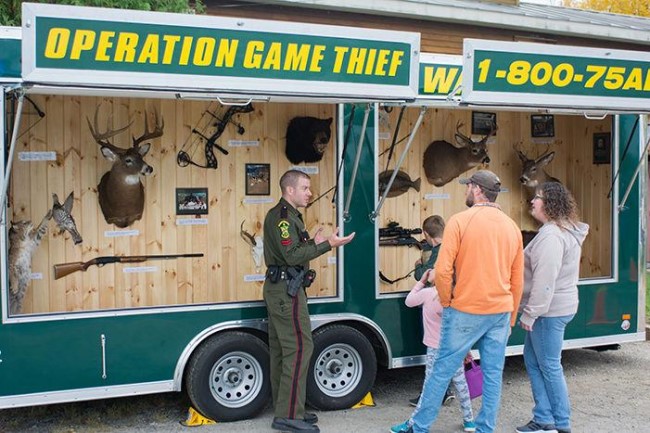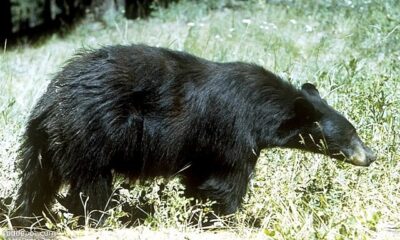Adventure
Poachers, Beware: Operation Game Thief is ON

Courtesy Vermont Dept. of Fish & Wildlife
What do hunters hate more than heavy rain and high winds? Poachers, that’s what, and this year Operation Game Thief (OGC) aims to put an end to poaching…but they need your help to be their eyes and ears on the ground. Although today’s report comes to us from Arizona, Operation Game Thief is an initiative that’s spreading nationwide–chances are quite good that Operation Game Thief has an anti-poaching program in your state. It’s a confidential, anonymous service that offers rewards (some quite hefty) for tips that lead to convictions.
The situation in Arizona offers a perspective on why our states’ overstretched wildlife-management systems need your help. For example, AZ has almost 114 million square miles of harsh deserts, rugged canyons, sweeping plateaus, rivers, lakes and thick forests that are spread across some 15 counties. They only have 97 wildlife managers, or game wardens, of the Arizona Game and Fish Department (AZGFD). It’s a monumental task, done daily by dedicated people who are charged with being part officer, part biologist, part educator, and all-the-time conduit to the public. Arizona isn’t unique, of course; the situation is more or less the same all over America.
That means that it’s simply not possible for fish and game officials to catch every poacher. They need you to be a “silent witness.” All calls to the OGT hotline are confidential, and you can remain anonymous. In Arizona, the program offers rewards ranging from $500 to $8,000 for information that leads to an arrest.
“Poachers are thieves who pose a serious threat to wildlife,” said Scott Fischer, OGT program manager. “Poachers are criminals. That’s why it’s important that hunters, who are committed to the time-honored tradition of hunting legally and ethically, continue to be vigilant by using their eyes and ears to help AZGFD investigate poaching cases and prosecute the perpetrators.”
Arizona’s OGT received more than 2,000 calls in 2019, resulting in 135 citations being issued statewide for wildlife violations, including the illegal take of big game, fishing violations, and the unlawful killing of migratory birds. Here are the top five reported violations last year:
- 567 for the illegal take of big game (resulting in 96 of the 135 citations).
- 155 for fishing violations.
- 109 for migratory bird violations.
- 96 for feeding wildlife.
- 66 for the illegal take of raptors.
In 2019, wildlife violators were assessed $60,074.86 in civil fines, proceeds that benefit the department’s Wildlife Theft Prevention Fund, which provides for rewards and promoting OGT. In addition, 16 individuals had their hunting and/or fishing licenses revoked by the Arizona Game and Fish Commission. AZGFD does not receive money from the state’s general fund.
Of course, wildlife managers realize that mistakes sometimes are made in the field by the most well-intentioned of sportsmen. Those who self-report violations often receive just a written warning (provided negligence isn’t found on the part of the hunter), and the meat from the wildlife taken is typically donated to local food banks.
The number to call for Operation Game Thief depends upon which state you’re in. Arizona’s is 800-352-0700, but if you’re not an Arizonan just go to Google and search “Operation Game Thief” and your state.
“The hunting community does a great job of policing itself,” concludes Fischer. “If you see something, say something. Together, we can make a difference for Arizona’s wildlife.”










